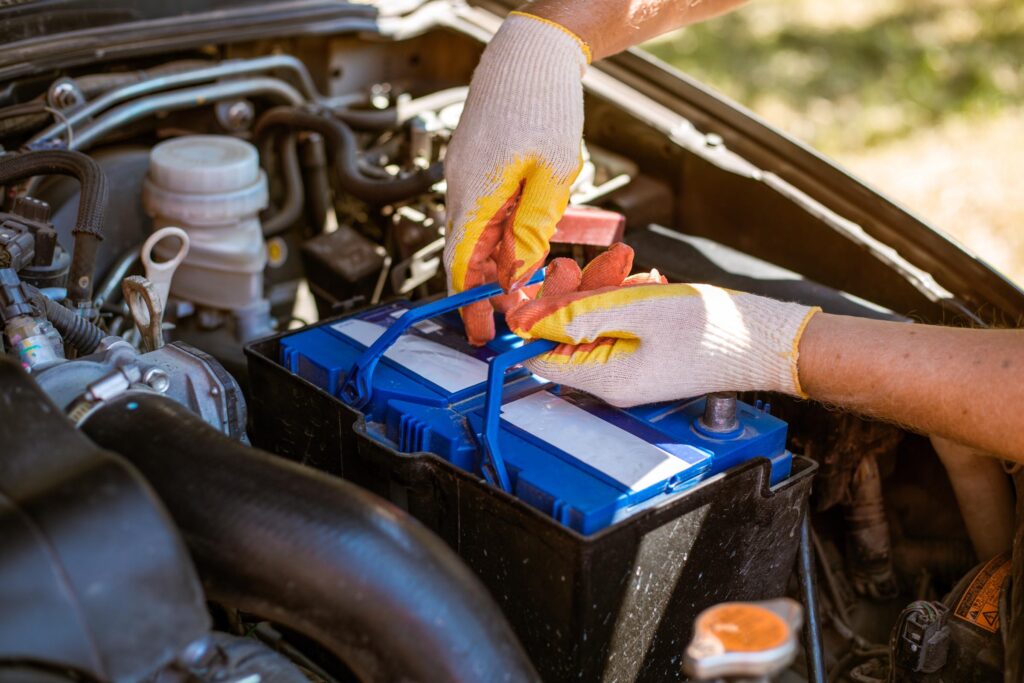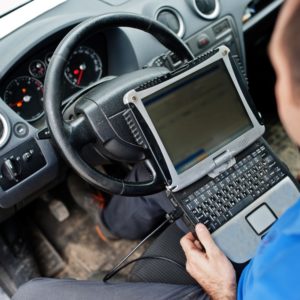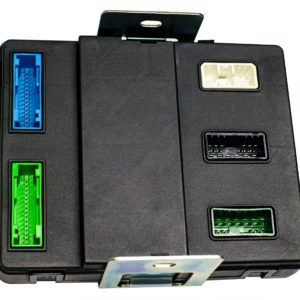A lot can go wrong when you’re out on the road一you could get a flat tire, the engine can overheat, or the lights could go out.
But if there’s one thing that’s more nerve-racking than these, it’s when your vehicle won’t start at all. If your car won’t turn over but has enough power to get the lights and radio to work, these could be some of the reasons why.
Battery Issues
Most batteries can last anywhere between three and seven years. Once it begins to wear out, it might still be able to get the radio and lights running, but it won’t have enough juice to get your car to start.
The battery can also fail prematurely. Overcharging can cause the battery’s internal components like the active plate material to disintegrate and fall out of the supporting grid framework.

Excessive vibration and bumping can also produce the same results.
There are some telltale signs that the battery is nearing the end of its service life. Excessive corrosion on the battery cables and connections usually indicate that the battery is sulfated.
This means that acid fumes are seeping out of the vent holes, infiltrating the cables, connections, and battery tray.
Other symptoms of a weak or defective battery also include slower-than-normal engine cranking and water in one or more cells.
Starter Problems
The starter motor is a part of the cranking system that generates up to eight horsepower when cranking a cold engine. It uses the principle of electromagnetism to convert electrical energy into mechanical energy to crank the engine. A solenoid or relay supplies power to the starter motor, creating magnetic fields that force the armature to rotate. Most starter motors have four pole shoes and two to four field windings to create a magnetic field within the motor.
Electrical overload, contamination, and physical damage are some of the reasons why the starter motor could fail.
A faulty starter motor can still produce a clicking sound when you try to crank the engine because the starter solenoid remains attracted to the electromagnet. But other than that, there won’t be enough power to get the engine running, although some of the electrical components might still work.
Faulty Ignition Switch
The ignition system generates a high voltage that’s sent to the spark plug to kickstart the combustion process inside the cylinder.
This system has an ignition switch or power transistor that turns the primary circuit on and off.
Worn-out ignition switch contacts, a blown fuse, and damaged springs, among others, are reasons why the ignition switch can fail. In some cases, a faulty ignition switch can even cause the engine to die out while you’re driving.

Clogged Fuel Filter
Fuel filters keep gasoline clean from dirt, rust, water, and other contaminants.
Typically mounted on a bracket on the frame well or shock tower, fuel filters can last anywhere from 30,000 to 100,000 miles.
If the filter gets clogged, it can restrict fuel flow and prevent the engine from starting.
Car Isn’t in Park
If your car won’t start but the radio works, the problem might be as simple as locking in the wrong gear.
Some vehicles won’t start unless the gear is locked in “park,” while others can start in “neutral” when the computer fails to recognize the gear is in park. Fortunately, this isn’t a serious problem, and you only need to put the gear in neutral and back to park before cranking the engine.
Faulty Fuel Pump
The fuel pump is one of the many components that make sure that the fuel injection system receives the right amount of fuel. An electric fuel pump acts as a pusher unit that pressurizes the fuel supply line to the engine.
Over time, clogged filters, contaminated fuel, and electrical faults (e.g. loose connectors and rusted wirings) can damage the fuel pump, preventing gasoline from reaching the engine.
A fully operational fuel pump typically produces a buzzing sound, indicating that it’s priming the fuel injection system. If you don’t hear this buzzing sound, you might want to check whether or not the pump is working.
Worn-Out Spark Plugs
Spark plugs provide an air gap inside a cylinder to initiate fuel combustion. They’re essentially windows to the combustion chamber.
However, spark plugs can fail after some time because of carbon or oil fouling.
Carbon fouling is typically represented by dry black carbon on the spark plug. This can result in engine performance issues like excessive idling, defective thermostat, rich air-fuel mixture, and a weak ignition system output.

Meanwhile, wet and oily deposits with little electrode wear is indicative of oil fouling on the spark plug.
Worn-out or broken piston rings, valve guides, and defective or missing valve stem seals can cause oil to get into the combustion chamber.
Tips for Diagnosing Ignition Problems
There can be dozens of reasons why your vehicle won’t start, and going through each component can be time-consuming.
Fortunately, there’s a simple trick that can help you come up with a short list of faulty parts.
By listening to certain sounds when trying to crank the engine, you might be able to pinpoint the part that’s causing the problem.
For example, when the key is turned and you can only hear one distinct click and the engine isn’t turning over, a failing starter is usually to blame.
When the key is turned and you can only hear one distinct click and the engine isn’t turning over, a failing starter is usually to blame.
–Anthony Harlin, ASE Certified Master Automobile Technician
Meanwhile, multiple rapid clicks while turning the key usually points to a battery with low charge.
Lastly, no clicks could mean anything, so it’s best to have a professional diagnose your vehicle.
Key Takeaways
It can be hard to pinpoint the exact cause of why your car won’t turn on. These issues can be electrical or something related to fuel pressure and delivery.
Keep in mind that blindly diagnosing your vehicle can do more harm than good, which is why it’s a good idea to have a professional mechanic take a look at your daily driver instead.
Get Replacement Parts to Fix Your Ignition Problems
Nobody wants to deal with a vehicle that won’t start, especially when you’re out and about. As soon as you notice issues with your ignition system, it’s best to identify the defective part and replace it as soon as possible. Luckily, getting replacement parts to fix your ignition problems is fast and easy with CarParts.com.
CarParts.com offers a wide selection of batteries, fuel filters, and other ignition system parts, all sourced from the most trusted manufacturers in the industry. You can easily browse through our catalog with the help of our vehicle selector and search filters. Thanks to our strategically located warehouses around the US, you can also get back on the road as soon as possible. Order by 12 p.m. ET, and you can expect your package to arrive in as fast as two business days.
Don’t wait until your entire ignition system completely breaks before replacing defective parts. Check out our catalog of high-quality batteries, fuel filters, fuel pumps, and more at CarParts.com today!
Any information provided on this Website is for informational purposes only and is not intended to replace consultation with a professional mechanic. The accuracy and timeliness of the information may change from the time of publication.






























